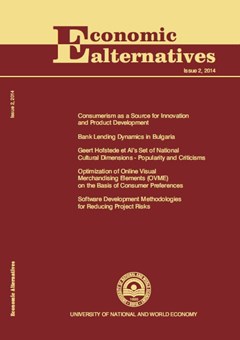Software Development Methodologies for Reducing Project Risks
Authors: Kamelia Stefanova, Veselin Georgiev
Abstract
The rapid expansion of information and communication technologies in all business and social areas today has increased the pressure on and the need for the optimization of software development process. More than ever, the relation between quality, cost and time for delivery become a critical requirement for success. Developing cost competitive software products that meet high quality standards according to the time constrained market today is becoming a demanding task. Most of the software development processes are overburdened with strict and heavy documentation procedures that require strong control mechanisms and create additional sophistication in the software projects management. New families of methodologies for software development, referred to as Agile Processes, are introduced to meet the challenges of the future developments in the software industry. These methodologies focus on the flexibility and adaptability and are described as agile, unlike the traditional processes which are restrictive in the introduction of changes. The application of these methodologies and practices answer the need to reduce risks and increase quality and usability of the final software product.

